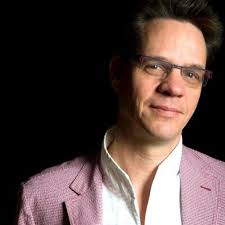Interview Kocku von Stuckrad about his new book 'The Scientification of Religion'

Science and religion are often paired as diametric opposites. However, the boundaries of these two fields were not always as clear as they seem to be today. In The Scientification of Religion: An Historical Study of Discursive Change, 1800-2000 (De Gruyter, 2014), Kocku von Stuckrad, Professor of Religious Studies at the University of Groningen, demonstrates how the construction of what constitutes 'religion' and 'science' was a relational process that emerged with the competition between various systems of knowledge.
In this book, von Stuckrad traces the transformation and perpetuation of religious discourses as a result of their entanglement with secular academic discourses. In the first half of the book, he presents the discursive constructions of 'religion' and 'science' through the disciplines of astrology, astronomy, psychology, alchemy, chemistry, and scientific experimentation more generally.
The second half of the book explores the power of academic legitimization of knowledge in emerging European modernities. Here, the discursive entanglements of professional and participant explanations of modern practices shaped and solidified those realities. Key figures in the history of the field of Religious Studies, such as Martin Buber, Gershom Scholem, Rudolf Otto, and Mircea Eliade, played instrumental roles in legitimizing the authority of mysticism, goddess worship, and shamanism.
Ultimately, what we discover is that 'religion' and 'science' are not so much distinctive spheres but elastic systems that arise within the particular circumstances of secular modernity. In our conversation we discussed discursive approaches to the study of religion, the Theosophical Society, marginalized forms of knowledge, the occult sciences, Jewish mysticism, secularization, nature-focused spiritualities, experiential knowledge, pagan religious practices, and 'modern' science.
| Last modified: | 25 July 2023 1.05 p.m. |
More news
-
05 March 2025
Women in Science
The UG celebrates International Women’s Day with a special photo series: Women in Science.
-
10 February 2025
Project GRACE: An ENLIGHT ETN Grant Winner
We are happy to announce that the project GRACE, with Julia Martínez-Ariño as the main coordinator, is one of the projects selected for the ENLIGHT 2024 Call. Congratulations to the GRACE team.
